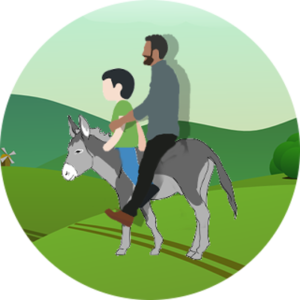Independence
Independence is a virtue that transcends boundaries and empowers individuals to chart their own course in life. It is a quality that allows one to think, act, and make decisions autonomously, free from undue influence or dependency. Let us explore the virtue of independence and why it is essential for our personal growth, self-discovery, and the realization of one's potential.
The feeling of independence possesses an extraordinary power to ignite a sense of empowerment within an individual. It is a liberating force that enables individuals to assert their identity, embrace their uniqueness, and manifest their true potential. The quality of independence cultivates self-reliance, empowering individuals to take charge of their lives and pursue their goals with determination. When one is independent, they develop confidence in their abilities, as they learn to rely on their own judgment and skills. This self-reliance fosters a sense of empowerment, allowing individuals to overcome challenges, make informed decisions, and navigate through life's complexities. When children are given the opportunity to tackle challenges on their own, they develop a sense of competence and resourcefulness. They learn to trust their abilities, overcome obstacles, and seek solutions independently. This self-reliance sets them up for success in various aspects of life, from academic pursuits to personal relationships and career endeavours.
The virtue of independence also encourages critical thinking and the development of sound decision-making skills. Independent individuals are inclined to question prevailing norms, analyse information objectively, and arrive at their own conclusions. They are not swayed solely by popular opinion or external pressures but rather make decisions based on careful evaluation of facts and values. This ability to think critically enables independent individuals to contribute to informed and constructive discussions, paving the way for progress and positive change. When we teach children to analyse situations, consider different perspectives, and solve problems independently, they become better equipped to navigate the complexities of life. This ability to think critically helps them make informed choices, build self-confidence, and take responsibility for their actions.
Furthermore, teaching children independence contributes to their emotional well-being too. When children are encouraged to make choices and take responsibility for their actions, they develop a sense of control over their lives. This sense of control fosters self-esteem, self-worth, and a positive self-image. Moreover, independence allows children to develop healthy coping mechanisms, manage stress, and build emotional intelligence. By embracing independence, individuals become proactive participants in shaping their own destinies, and they contribute to the betterment of their communities through responsible actions and ethical decision-making.
When individuals are empowered by their independence, they develop a mindset that embraces change and welcomes new experiences. They are more open to learning from failures, viewing setbacks as opportunities for growth. This resilience allows them to bounce back stronger and emerge from adversity with a greater sense of self-assurance and wisdom. Thus, inculcating the virtue of Independence in children cultivates resilience and adaptability, enabling them to navigate life's challenges with grace and determination.
Therefore, the virtue of independence is a cornerstone of personal empowerment and societal advancement. As a society, we must nurture and promote independence, as it enables individuals to unlock their full potential and contribute meaningfully to the world. So, let us inspire and guide our children towards embracing their independence and becoming the best versions of themselves.

